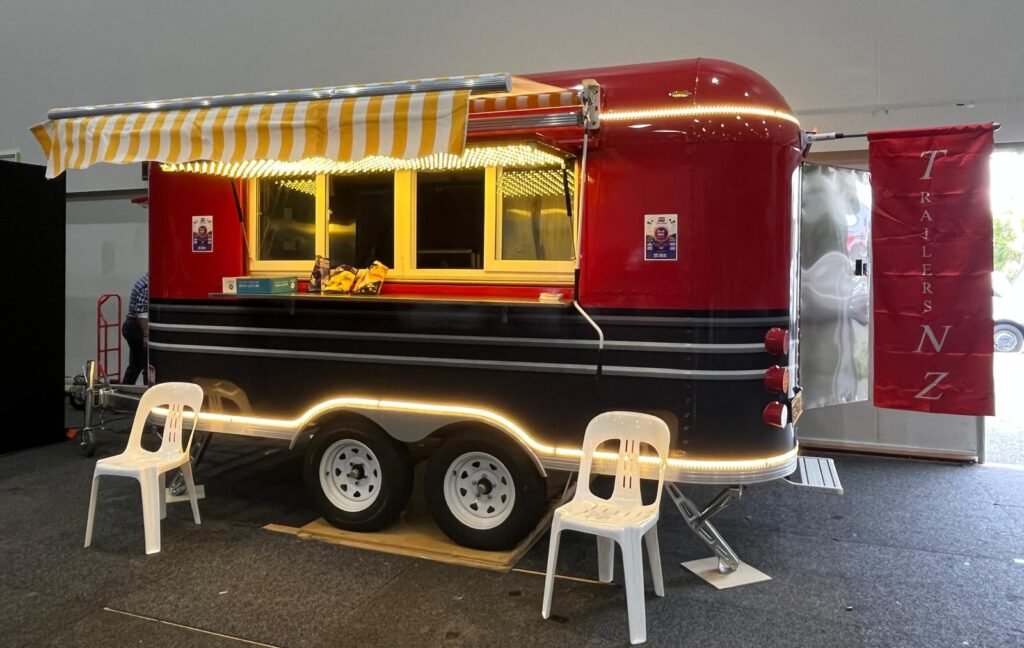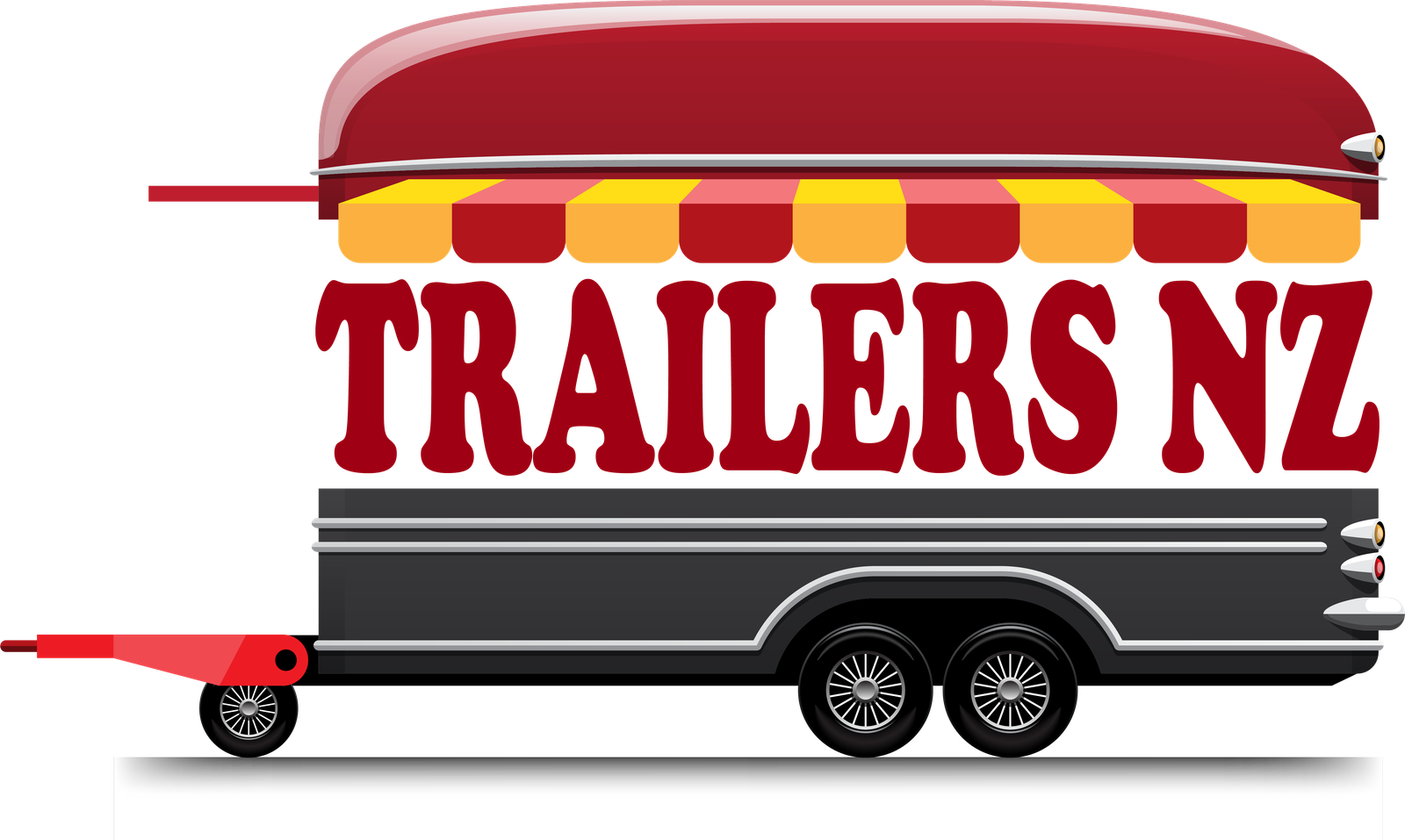How far can the food truck boom go?
Registrations for food truck and trailer licenses are on the rise, and some in the business believe that mobile hospitality’s golden age is just beginning.
In Australia, however, the peak may have passed. In recent years, the number of food trucks has surged, increasing competition and decreasing returns. The Australian Mobile Food Vendors Group reports that Victoria has 3,000 trucks, double the 1,500 seen two years ago.
Yet, Tauranga marketing adviser Sheldon Nesdale, who tracks the food truck scene in New Zealand, says the industry there is just taking off.
Judge Bao co-owner Jamie Johnston believes food trucks drive food trends, inspiring restaurants to feature dishes like tacos, bao buns, and loaded fries. Johnston, who was impressed by New Zealand’s diversity when he arrived, attributes the country’s unique truck scene to its cultural mix.
“In New Zealand, it’s absolutely boom time,” he says. Nesdale started a website three years ago to monitor mobile hospitality vendors. He now counts 214, with two new trucks launching each week. “Food trucks are a magical way to eat,” he says. “They’re delicious and gourmet, offering unique meal choices. They are a great value for money because their operating cost is low, they’re mobile, and they bring enjoyment to food truck events.”


Nesdale notes that local councils have acknowledged the community benefits of these events, making it simpler for sellers to operate. However, not everyone finds the process simple to understand. Maggie Gray, a mobile vendor, says beginning her food trailer & trucks was more difficult than she anticipated. She discovered that council permissions, taxes, and compliance charges complicate operations.
“There’s a great food truck community in Auckland,” Gray notes. However, securing more flexible trading options in city centers remains a challenge. According to Auckland Council, there are 432 mobile food vehicles operating in the city—312 food trucks and 119 coffee carts—consistent numbers over the last two years.
Gray, who runs the organic smoothie bar Rawe part-time, also leads the Auckland Food Trailers & Trucks Collection, a group that meets monthly to discuss industry issues. She notes that Auckland’s food truck scene has grown rapidly, bringing both benefits and challenges as the market becomes more saturated.
Event fees, ranging from $100 to $1,000, can also pose a risk. Gray says cancellations and unprofitable events sometimes lead to losses. She adds that fairer pricing from event organizers would help sustain the industry. Despite the hurdles, Gray believes food trucks can be profitable with the right timing and event.
Nesdale attributes food trucks’ appeal to the distinctive food and drink they offer. “What I really appreciate is the creativity,” he says. “If vendors can come up with a fresh concept, I think they’ll succeed.” He notes that rising demand for healthy and alternative foods has fueled the sector’s popularity, drawing people to mobile dining.
Catering, retail sales, and brand partnerships help vendors stay afloat during quieter periods, especially during winter. For example, Judge Bao, a Chinese-inspired street food business, supplements income by selling bottled sauces and spices and collaborating with brands like gin maker Bombay Sapphire.
Co-owner Debbie Orr recalls that Judge Bao started in 2015 as a weekend project. But to pursue it fully, she and her partner left their full-time jobs. Over time, more vendors offering gourmet street food have shifted public perception of the industry.
Judge Bao co-owner Jamie Johnston believes food trucks drive food trends, inspiring restaurants to feature dishes like tacos, bao buns, and loaded fries. Johnston, who was impressed by New Zealand’s diversity when he arrived, attributes the country’s unique truck scene to its cultural mix.
Dan Smith, a former food trailers and truck operator, ended his part-time business after 15 years due to mounting operating costs. He agrees with Gray that compliance fees and event costs have made the business tougher. “Event fees have skyrocketed as costs across the board increased,” he says. Despite these changes, Smith found the experience rewarding, describing the joy of being part of an event.
Food trailers or trucks popularity has led even major brands like Hell Pizza and Ben & Jerry’s to join the trend, recognizing the appeal of a mobile setup. In Christchurch, the council has issued 15 truck licenses this year, following a consistent yearly trend. Meanwhile, in Wellington, there was a spike in registrations due to changes in food hygiene regulations.
Lindsay Neill, a senior hospitality lecturer at AUT University, believes food trailer & trucks are here to stay. “The relationships food trailers and truck owners build with customers add value,” he says, suggesting that New Zealand’s smaller market encourages more thoughtful concepts. However, he notes that as the market grows, there will likely be a shakeout, with less distinctive operators falling by the wayside.
“We’re still on the upswing,” he says. “It’s hard to predict when it will peak, but for now, food trailers & trucks and Food Trailers continue to thrive.”
FAQs
Are food trucks profitable in NZ?
It’s definitely a profitable model when you’re at the right event and trading on the right day.
What do you need to run a food truck in NZ?
To start a food trailer & truck in New Zealand, you need:
Licenses: Food registration, mobile trading license, and potentially others, depending on your business model.
Does food tailer & trucks make money?
Yes, absolutely money to be made in a food trailers & truck business. It has converted into a popular and profitable venture in various parts of the world, including New Zealand.





